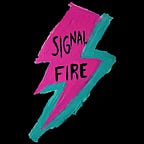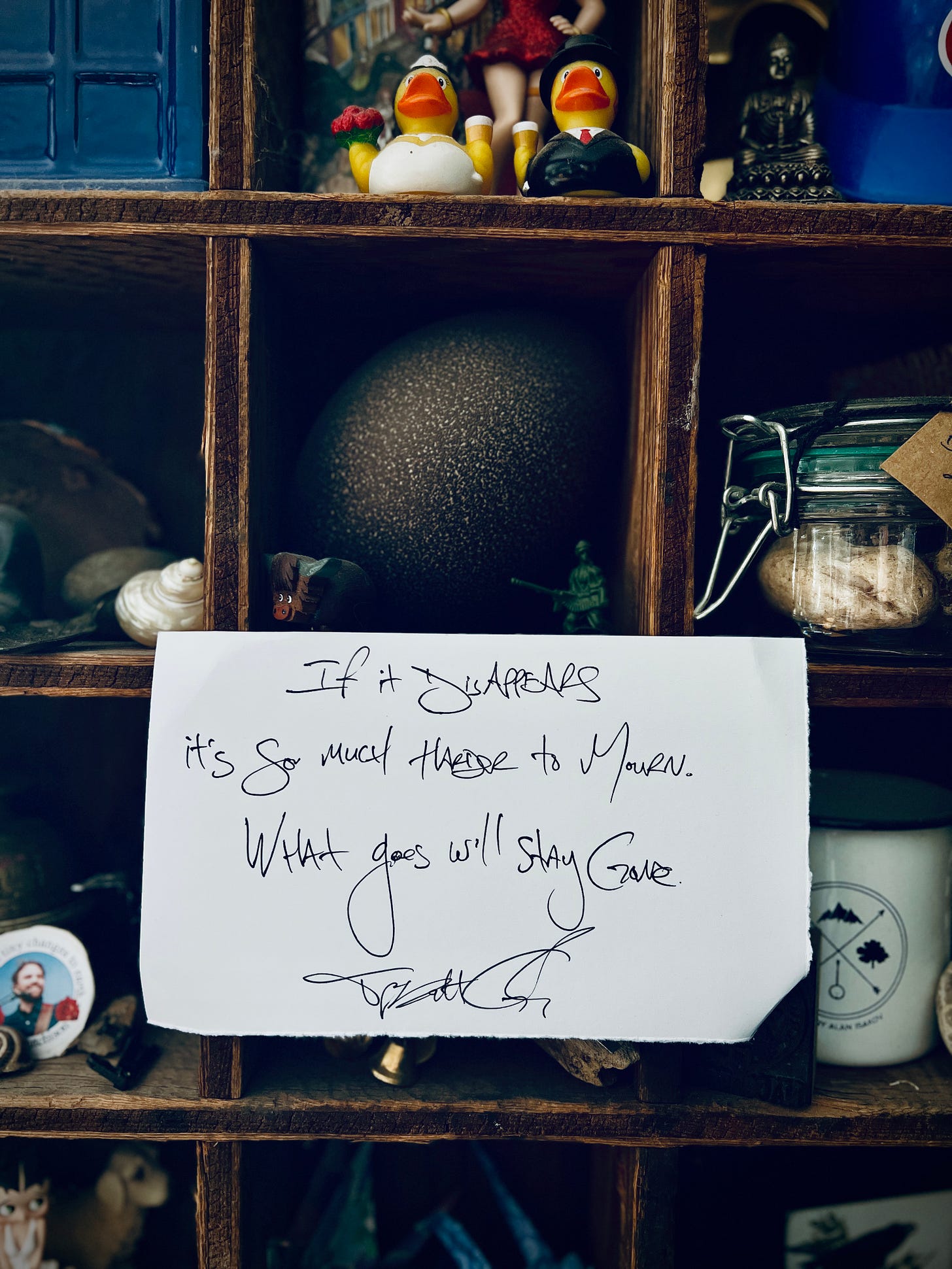I’m not good at funerals. Never have been. If it was up to me, I’d never attend a single one, not for anyone, not ever. I wouldn’t have one for myself, should I up and go and begin my journey again, now or later, doesn’t really matter. I’m just not good at funerals.
Autism paints things in different colors, makes just about every aspect of life unquantifiably (that’s probably not a word) something else, and the trouble is, I’m not quite sure I could ever explain all the hidden ways why this is. One way, especially now that I’m getting older and watching those I love (and those they love, in turn) get older still, that is emerging in realtime, is the indescribable difference in how I mourn, how I grieve.
I’ve lost all four of my grandparents now, and I can distinctly remember each of their passing. I loved, and love, them all profoundly, and I wish they were still here with us. I wish they were still gracing us with their presence, their laughter, their wisdom. Strangely though, when they passed, the grief did not hit me as it hit all those around me, and for a long time I wondered if that meant something in me was broken. I wondered if I was doing it wrong, if I wasn’t mourning right, if I wasn’t caring enough.
I cannot speak for other autistics, and if there are any reading this I would very much welcome your input on this in the comments below, but I’ve been realizing more and more that something that causes trouble in the autistic experience, is that when something, anything really, changes from one thing to another thing, the new thing becomes THE THING and the old version of that thing somewhat fails to exist anymore. That sentence was taken almost word for word from the note I jotted down when I wanted to write this piece, so forgive its disjointed nature, I wanted to keep it as it was when it spilled from my mind.
We process change differently, I think, and I believe this to be probably nearly-universal across all neurodivergents. When something transitions in our lives, from old to new, from living to dead, from thriving to struggling, from there or gone, it’s almost as though the current manifestation of whatever the thing is replaces any other instance of it. At least for me. The old version struggles to feel as something to be mourned deeply, it almost feels as though it was never real in the first place. I don’t know how else to describe this.
When my grandparents passed, when I’ve lost friends, other family members, anyone I love and care for, it’s not that I wasn’t sad, for I was horribly so. It’s not that I didn’t care enough, it’s not that I was emotionally distant or even insulating myself against one of the most important human emotions—grief. More, it was that my mind has trouble holding multiple versions of something at once. It takes up too much room, it’s too confusing, it’s too scattered and disjointed and makes me feel like there’s not enough of me to be spread.
I think taken as an average, most neurotypical people attach emotions to past iterations of things—old homes, old relationships, old versions of themselves. They struggle when cherished things break, when friendships are outgrown, when favorite clothes no longer fit or get stained or ripped beyond repair. For me, and I wonder if for other autistic individuals, the past item does not, and cannot, carry the same weight as what is current. Cue misunderstandings.
I’ve watched Sarah struggle intensely with the dissolution of friendships that no longer serve either party, I’ve seen her feel deep loss when something she loved has broken, stopped working, or needed to be thrown away. I’ve stood beside her as she mourns death, quietly holding her when she cannot hold herself up. I am so hopeful that my strange brain and its bizarre differences have been helpful then, have been steadying in some odd way. I truly hope I’ve never once made her feel like I do not understand the weight, the sincere and overwhelming weight, that grief makes her, makes all of us, carry.
Perhaps there are pros and cons of this niche aspect of my autistic experience. Perhaps if I were to sit and draw a list, divided into two, I would be able to fill both columns with truth. On one side, the benefits would come swiftly. Adapting to loss comes far easier, mindfulness that others meditate or take classes for comes naturally. I am in each moment, always, fully immersed in the present because of the constant bombardment to my senses. Everything is now. I hold no materialistic viewpoints, I care so little of the things I own, the things I wear, the things that break or fall. With death, I immediately imagine those I’ve lost as beginning again, and then curiosity rises and makes me want to search for their new form, look to find them hiding in some new skin. Same soul, new wrapping. This soothes, this eases, this calms.
On the other side of that list, the challenges too will flow easily and fill the list just the same. Feeling this way can be monumentally isolating. When people expect sadness, grief, or even deep attachment and it is not felt in the same way, so many others who do not know me how they’d need to, might assume I do not care like they care. That I do not feel the same weight, the same gravity. It can also be staggeringly confusing, giving birth to thoughts internal about loss. If the past things vanish completely, what happens to the people, the places, the love, that we once knew? You find yourself asking hard questions about hard topics, find yourself wondering if it’s now up to you to find it all again, if they are just beyond where they can be reached?
Lastly, and most importantly, I think the biggest challenge comes when things do sneak through the cracks and hit hard. With no accumulation of experience in handling those hard emotions that neurotypical people must face all the time, for me on the autism spectrum, when grief does hit me like a freight train out of total darkness, it hits beyond hard. Not knowing when it will, not knowing which will trigger it, is disorienting and frankly, terrifying. When I have lost my dogs, 4 now I’ve had to say goodbye to, it wrecked me on a level I never saw coming and had no idea how to cope with. It asked a million questions why I was hit harder by their death than that of humans that I have loved and lost. It woke me in the middle of the night, it still does after dreams that call them back to me, and punishes me with my inability to rectify it, to fix it, to find them now.
I often feel nostalgia, out of that same dark nothingness, for not a person, place, or thing, but for a time. For that strange ephemeral and magical time in my life when things felt easier, though I know they were not. That time of such simple joy and adventurous peace. I fall into this time a lot, always cued by something unexpected—a scent from something completely unrelated, a song, or even some precise temperature and humidity in the air when I stand outside and aim my eyes north. I don’t know, but I know.
I think what I’d love, is to hear from you all—do you process change this way? Do you understand these words that I am saying? Do you carry the weight of the old versions of things with you, or does the new thing replace it? If you would like to join this conversation, please join us and keep this conversation going. We need you here, I Need you here.
What is mourning, what is grief, what is any of it, if what is replaces what was? I do not know. Maybe you can tell me.
If you enjoy this, please take two seconds to click the Heart to Like it at the bottom, and ReStack it or Share it. This really helps my work get seen by more people and helps this place grow.
If it disappears
it’s so much harder to mourn.
What goes will stay gone.















